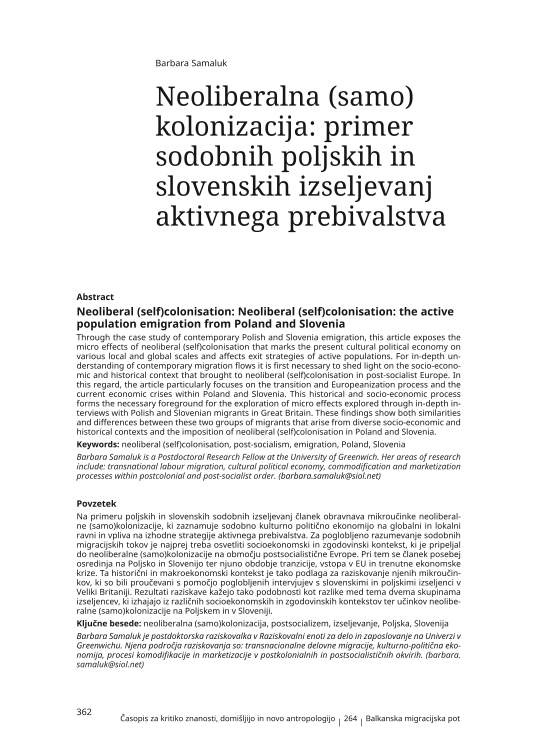Through the case study of contemporary Polish and Slovenia emigration, this article exposes the micro effects of neoliberal (self)colonisation that marks the present cultural political economy on various local and global scales and affects exit strategies of active populations. For in-depth understanding of contemporary migration flows it is first necessary to shed light on the socio-economic and historical context that brought to neoliberal (self)colonisation in post-socialist Europe. In this regard, the article particularly focuses on the transition and Europeanization process and the current economic crises within Poland and Slovenia. This historical and socio-economic process forms the necessary foreground for the exploration of micro effects explored through in-depth interviews with Polish and Slovenian migrants in Great Britain. These findings show both similarities and differences between these two groups of migrants that arise from diverse socio-economic and historical contexts and the imposition of neoliberal (self)colonisation in Poland and Slovenia.




